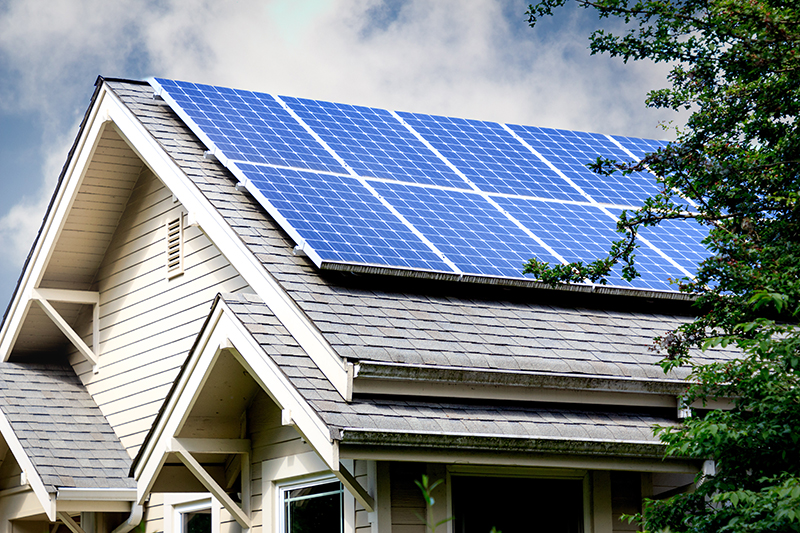Can I deduct solar panels?
March 29, 2021 by Steve Banner, EA, MBA
That’s a question that a lot of people ask, especially once they find out how much it will cost them to buy and install a solar panel system for their home! Well, I’m happy to report that there are several different tax breaks available for solar panels used either in the home or in a business. Let’s look at a couple of examples.
Let’s start with Larry who was fed up with his high electric bills and wanted to find a way to lower the monthly costs for his home in Arizona. In 2020 he paid $20,000 to have a solar electric system installed in his home. Because this system used solar energy to generate electricity for use in a home located in the United States, Larry can claim a tax credit. The Residential Energy Efficient Property Credit allows Larry to claim up to 26 percent of his qualified solar electric property costs ($5,200 in this case). He can use this as a credit against his taxes in 2020. If it turns out that Larry’s tax bill before the credit is less than $5,200, he can zero out his 2020 tax bill. He can then carry the rest of the credit forward to 2021 where he can use it to offset his 2021 tax bill.
By the way, for this credit, a taxpayer’s “home” could be a house, houseboat, mobile home, cooperative apartment, or condominium.
Meanwhile when Larry’s cousin Mike saw how well the solar panel system was working at Larry’s house, he thought it might save him some money at his dairy farm in Oregon. After investigating further, he decided to install a solar system to reduce the electrical costs he was paying for his milking shed. Since he would use the system for his business and not his home, Mike was not eligible for the same type of credit as Larry. But the Investment Credit is designed for businesses, and it would allow Mike to claim a tax credit of 26 percent of the cost of installing solar energy property at his farm in 2020. Mike also benefits from being able to claim depreciation on his investment in his solar energy system. This would allow him to deduct almost all of the cost of his 2020 solar investment over the next five years. Or he could choose to use bonus depreciation and make the entire deduction on his 2020 tax return.
As you can see, even though installing a solar panel system is not cheap, the tax code offers light at the end of the tunnel for those who are willing to flip the switch!





